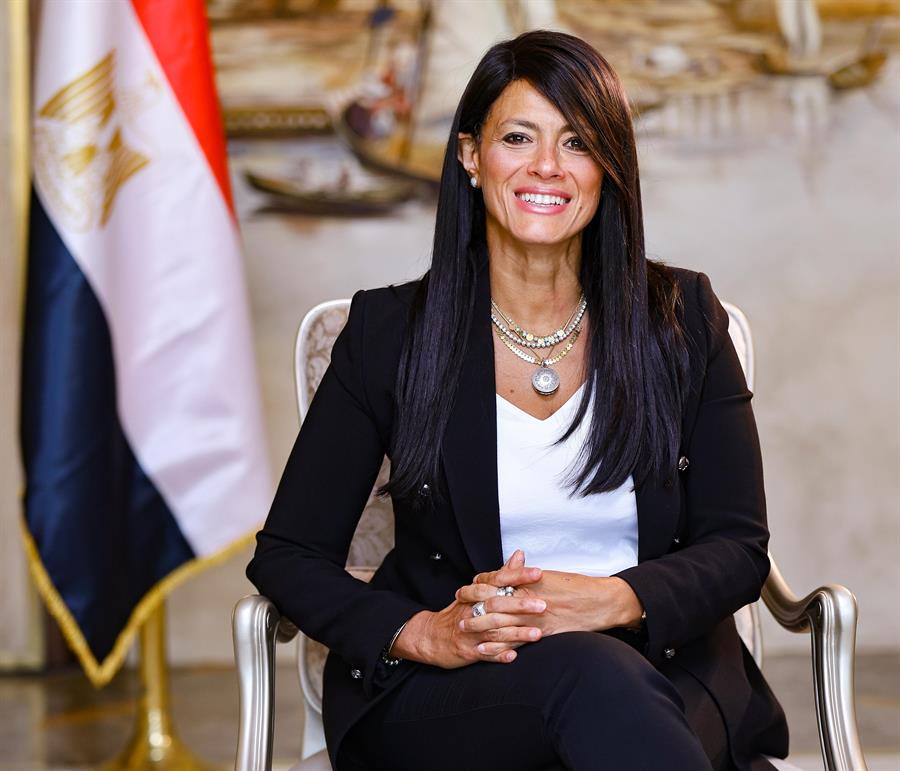Egypt’s Minister of Planning chairs the 3rd Meeting of Governance Council of Arab Africa Trade Bridges Program

15 March 2022
Egypt chaired on Monday 14-3-2022 the third meeting of the Governance Council of the Arab Africa Trade Bridges (AATB) Program. Egypt was represented by the Minister of Planning and Economic Development and Egypt's Governor at the Islamic Development Bank Group (IsDB) Hala el Said.
The meeting was attended by the CEO of the International Islamic Trade Finance Corporation (ITFC) and AATB Secretary General Hani Sonbol, in addition to some Egyptian, Arab and African ministers, ambassadors, heads of financing institutions, members of the House of Representatives, and Senate, in addition to representatives of the private sector.
Minister of Planning and Economic Development Hala el Said said during her speech that the meeting comes as an opportunity for consultation and exchange of ideas, visions, and successful experiences to promote the governments' efforts to boost trade between African and Arab countries.
The minister, also, expressed Egypt's appreciation of its continued fruitful cooperation with the ITFC, describing it as one of the most active member institutions of the Islamic Development Bank Group (IsDB).
She noted that this cooperation has resulted in a cooperation finance portfolio between Egypt and the ITFC amounting to $13.8 billion so far.
The minister added the Governance Council of the Arab Africa Trade Bridges (AATB) Program aims to stimulate and boost trade and investment flows between Arab and African countries, develop the business sector, enhance the capability of current exporters, and create a generation of new exporters, especially in AATB member states.
The program is also meant to develop new export products in current markets and open new markets in Africa via creating partnerships between Arab and African regions and maximizing benefits from the promising economic opportunities available.
Trade and Industry Minister Nevine Gamea, also, participated in the third meeting of the Governance Council of the Arab Africa Trade Bridges (AATP) Program in the presence of Planning Minister Hala El-Said, Saudi Minister of Commerce Majid Al-Qasabi, Benin's Minister of Economy and Finance Romuald Wadagni, President and Chairman of the Board of Directors of Afreximbank Benedict Oramah, and CEO of the International Islamic Trade Finance Corporation (ITFC) Hani Sonbol.
For her part, Nevine Gamea said that the Trade Ministry is currently cooperating with the Egyptian Exporters Association (Expolink) to establish the first academy for export in Egypt, wishing to launch the academy in the 47th Islamic Development Bank's (IsDB) Board of Governors' annual meetings, to be held in June.
Gamea stressed the importance of the AATP program in enhancing the trade exchange and investments among Egypt and Arab and African countries, pointing to its significant role in confronting the negative ramifications of the coronavirus pandemic.
The minister noted that the Harmonization of Standards for Pharmaceutical Products and Medical Devices in Africa initiative would have a great impact on boosting the African health sector and opening new horizons for trade and investment in the medium and long term.
The minister, also, mentioned that the AATP program supported Egyptian exporters in cooperation with the related Egyptian bodies by holding two workshops in 2020 and a training course in 2021.
She affirmed the Egyptian government's keenness to benefit from the program to improve the capabilities of institutions concerned with developing exports, increase access to foreign markets, enhance the role of Egypt and Arab countries in global value chains, refine the skills of youth and women, and develop small and medium enterprises in the field of e-commerce, as well as mechanizing and digitizing business processes in vital sectors of Egypt's foreign trade.









